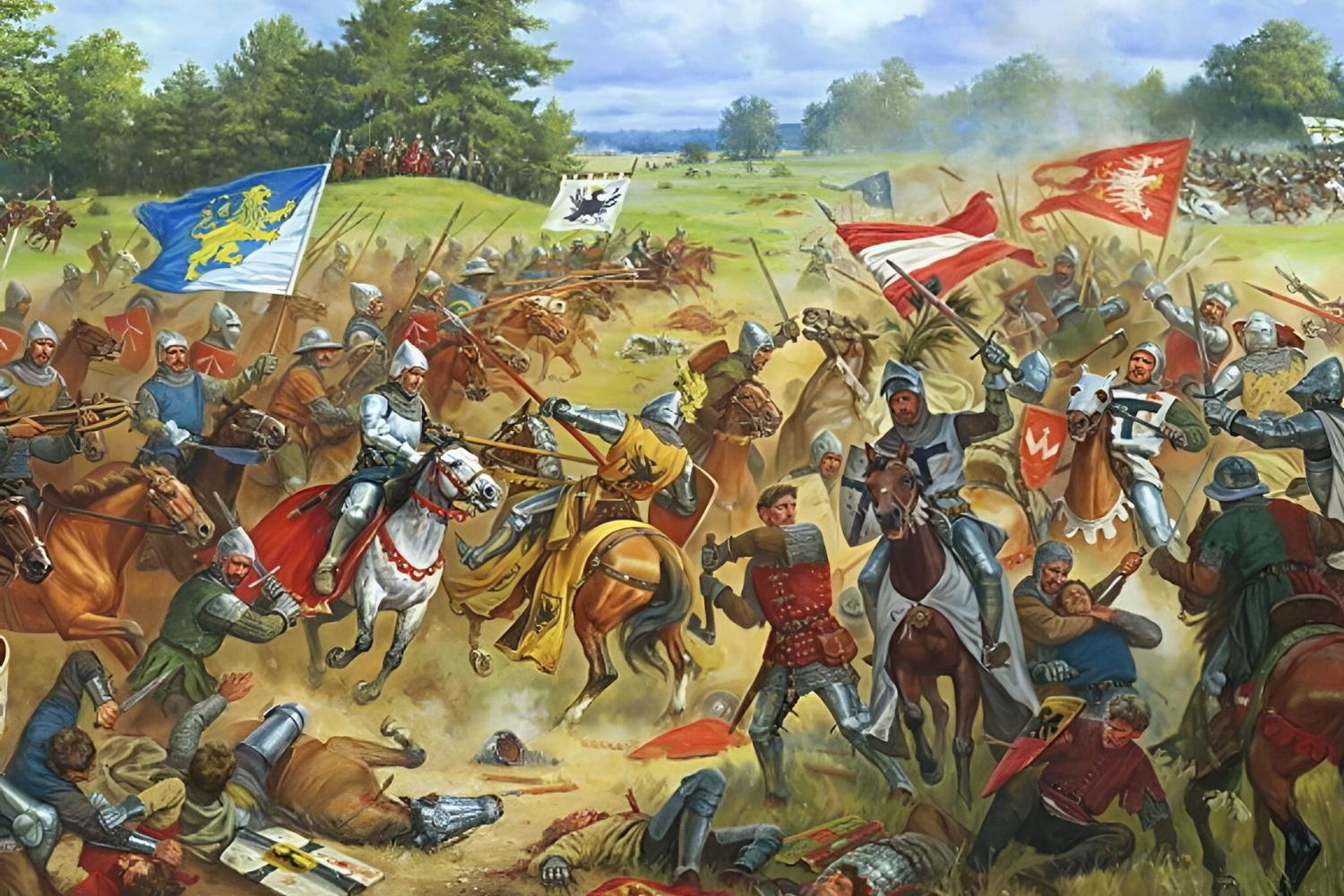
What was the Third War Against Swietopelk II? The Third War Against Swietopelk II was a significant conflict in medieval Europe, involving the Teutonic Knights and the Duchy of Pomerelia. This war, which took place in the mid-13th century, was part of a series of battles aimed at controlling the Baltic region. Swietopelk II, the Duke of Pomerelia, fiercely defended his territory against the expansionist ambitions of the Teutonic Order. The conflict saw numerous skirmishes, alliances, and betrayals, shaping the political landscape of the area. Understanding this war provides insight into the power struggles and territorial disputes that defined medieval European history.
Key Takeaways:
- The Third War against Swietopelk II was a medieval conflict involving power struggles, religious tensions, and territorial disputes, ultimately reshaping the political and social landscape of the region.
- The war led to the rise of the Teutonic Knights, significant territorial changes, and lasting impacts on trade, culture, and diplomacy in medieval Europe.
The Third War Against Swietopelk II: A Brief Overview
The Third War against Swietopelk II was a significant conflict in medieval Europe. It involved various factions and had lasting impacts on the region's political landscape. Here are some fascinating facts about this historical event.
Key Players in the Conflict
Understanding the main figures involved helps grasp the war's complexity.
- Swietopelk II was the Duke of Pomerelia, a region in modern-day Poland. His ambitions and actions were central to the conflict.
- Teutonic Knights played a crucial role. This military order aimed to expand its influence and territory.
- Duke Barnim I of Pomerania allied with the Teutonic Knights against Swietopelk II, seeking to curb his power.
- Duke Mestwin II was Swietopelk II's son. His involvement added familial tension to the political strife.
Causes of the War
Several factors led to the outbreak of the Third War against Swietopelk II.
- Territorial Disputes were a primary cause. Swietopelk II's expansionist policies threatened neighboring regions.
- Religious Tensions also played a part. The Teutonic Knights, a Christian military order, opposed Swietopelk II's pagan alliances.
- Economic Interests drove many factions. Control over trade routes and resources was a significant motivator.
- Previous Conflicts set the stage. Earlier wars between Swietopelk II and the Teutonic Knights created lingering animosities.
Major Battles and Events
The war featured several key battles and events that shaped its outcome.
- Battle of Nakel was a decisive conflict where the Teutonic Knights achieved a significant victory.
- Siege of Gdansk saw Swietopelk II's forces defending the crucial port city against the Teutonic Knights.
- Treaty of Christburg ended the war. This agreement forced Swietopelk II to cede territory and pay reparations.
- Capture of Swietopelk II marked a turning point. His capture by the Teutonic Knights weakened his position significantly.
Impact on the Region
The war had lasting effects on the political and social landscape of the region.
- Territorial Changes resulted from the Treaty of Christburg. The Teutonic Knights gained significant lands.
- Shift in Power occurred. The Teutonic Knights emerged as a dominant force in the region.
- Economic Disruption affected trade and agriculture, leading to hardship for many inhabitants.
- Cultural Influence spread as the Teutonic Knights imposed their customs and religion on conquered territories.
Legacy of the War
The Third War against Swietopelk II left a lasting legacy in European history.
- Historical Records provide detailed accounts of the conflict, offering insights into medieval warfare.
- Architectural Remains like fortresses and castles built during the war still stand today.
- Folklore and Legends emerged, with tales of heroism and betrayal becoming part of local culture.
- Diplomatic Relations evolved. The war influenced future alliances and conflicts in the region.
Interesting Tidbits
Here are some lesser-known facts that add depth to the story of the Third War against Swietopelk II.
- Swietopelk II's Nickname was "Swietopelk the Great," reflecting his ambitions and achievements.
- Teutonic Knights' Tactics included innovative siege techniques and disciplined formations.
- Medieval Weaponry used in the war ranged from crossbows to trebuchets, showcasing the era's military technology.
- Role of Spies was crucial. Both sides employed espionage to gather intelligence and undermine their enemies.
- Impact on Literature saw the war referenced in various medieval texts, highlighting its significance in contemporary thought.
The Final Stand
The Third War Against Swietopelk II was a pivotal moment in medieval history. This conflict, marked by intense battles and shifting alliances, reshaped the political landscape of the region. Swietopelk II, a formidable leader, faced numerous challenges but left a lasting legacy. His resilience and strategic prowess are still studied by historians today. Understanding this war provides insight into the complexities of medieval warfare and the intricate web of alliances and enmities that defined the era. The war's impact on the region's development and its influence on subsequent historical events cannot be overstated. By delving into these facts, we gain a deeper appreciation for the intricacies of medieval politics and the enduring legacy of Swietopelk II. This war, though often overshadowed by larger conflicts, remains a testament to the enduring human spirit and the relentless pursuit of power and survival.
Frequently Asked Questions
Was this page helpful?
Our commitment to delivering trustworthy and engaging content is at the heart of what we do. Each fact on our site is contributed by real users like you, bringing a wealth of diverse insights and information. To ensure the highest standards of accuracy and reliability, our dedicated editors meticulously review each submission. This process guarantees that the facts we share are not only fascinating but also credible. Trust in our commitment to quality and authenticity as you explore and learn with us.
